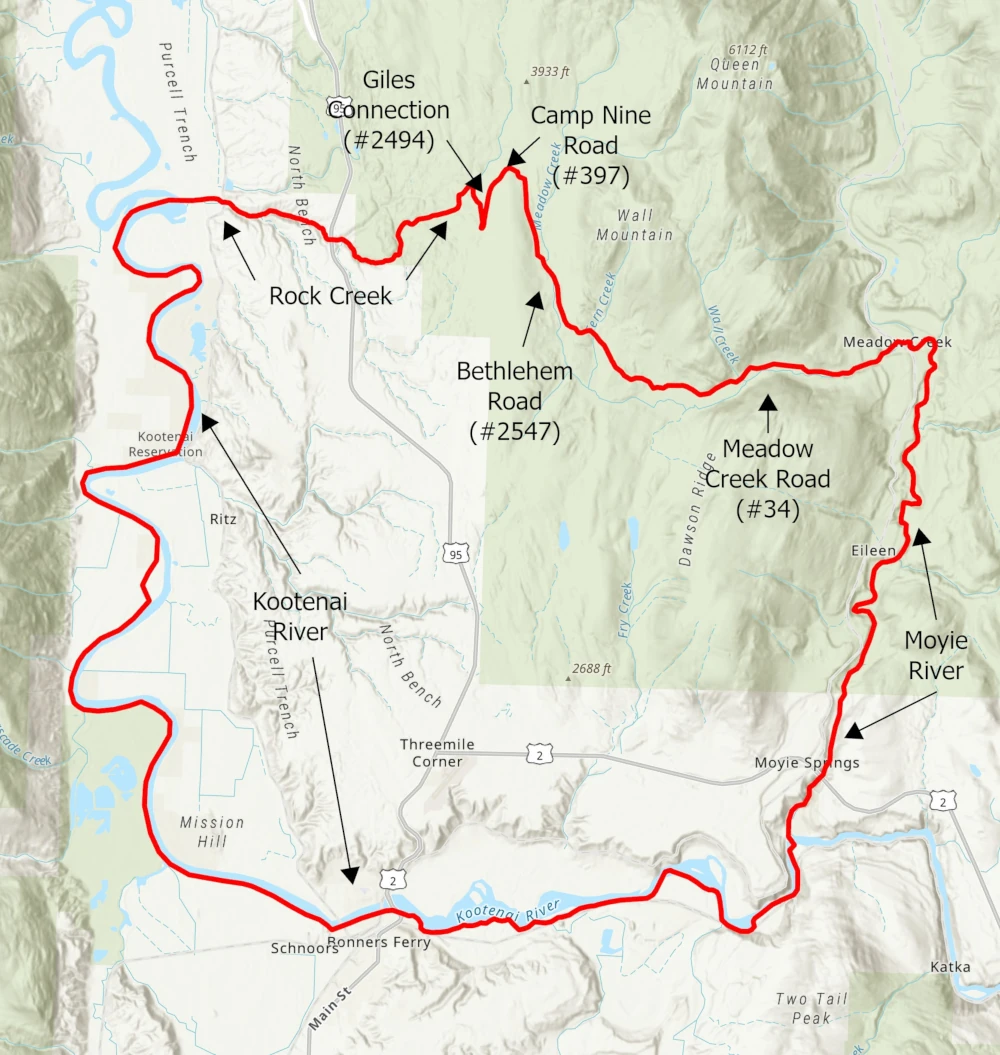During its August 15 conference call meeting, the Idaho Fish and Game Commission approved a nine-day chronic wasting disease surveillance hunt starting Saturday, August 24, with the goal of collecting additional samples to better understand disease prevalence and distribution. An adult white-tailed doe found dead in July tested positive for CWD about three miles from Bonners Ferry, which is the first positive CWD case in north Idaho.
In response, Fish and Game will offer 300 white-tailed deer tags for a CWD surveillance hunt to run August 24 through September 1 in a small portion of Unit 1.
Discounted tags, $10 each, all fees included, will only be sold in person at a Bonners Ferry location run by Fish and Game staff on August 22 (cash or check payments only). If any remain, those will be sold at the Panhandle Regional Office in Coeur d’Alene beginning on the morning of August 23. Each person participating in the hunt will be briefed by Fish and Game personnel and agree to all stipulations of the hunt.
People can call the Panhandle Regional Office at (208) 769-1414 for more information.
Hunt Details
Fish and Game’s goal is to collect 200 CWD test samples from this area with special requirements for hunters who participate, including:
- Tags are valid for either-sex, white-tailed deer only.
- Tags are available to Idaho residents only.
- Tags may only be purchased for eligible hunters and their spouse or dependent children on site.
- Hunters must present a valid Idaho hunting license to purchase a tag.
- Licenses will not be available for purchase at the tag sale location in Bonners Ferry.
- Tags will be “extra” tags that do not affect a hunter’s ability to participate in other deer hunts.
- Hunters must present the head of any harvested deer to a regional office or designated drop-off site in Bonners Ferry within 24 hours of harvest for mandatory CWD testing.
Other hunt details will be provided when a tag is purchased. Fish and Game will contact the hunter if a deer they harvested tests positive for CWD.
Why is Fish and Game having a special hunt before the general hunting season?
Since September 2023, Fish and Game has received 163 voluntary CWD tests from animals taken in Unit 1, which is roughly the size of Delaware. Since 2019, sampling in the unit has ranged between 145 and 214 samples annually. About 200 samples are needed to accurately estimate disease prevalence in an area.
Unit 1 supports high densities of white-tailed deer— and most hunting and harvest occurs during the general hunting seasons in November. Rather than wait, Fish and Game staff desire to get a better idea of CWD prevalence and distribution in the vicinity of Bonners Ferry so the department and Commission can determine if they need to alter upcoming general season hunts and/or CWD testing requirements.
CWD and Idaho’s neighbors
While disappointing, the CWD detection in Unit 1 is not completely surprising. Unit 1 is surrounded on three sides by Washington, British Columbia, and Montana, all of which have detected CWD, including relatively new detections in Washington and British Columbia.
Washington’s first case of CWD was confirmed earlier in August in an adult female white-tailed deer that was found dead north of Spokane. British Columbia reported its first detections of CWD in February in two deer roughly 50 miles from the Idaho border. In recent years, Montana has detected numerous CWD positives in the Libby area near Idaho’s border.
Fish and Game is asking people to report any sickly or road-killed deer, elk and moose in the U.S 95 corridor from the vicinity of Bonners Ferry to the Canada border, as well as along Highway 2 from Bonners Ferry to the Montana state line. If people observe deer, elk or moose that appear to be sick in Boundary County, report the observation by calling the Panhandle Region office at (208) 769-1414.
Chronic wasting disease is a contagious, fatal neurological disease that affects deer, elk and moose. Symptoms can include excessive salivation, drooping head/ears, tremors, extremely low body weight, and unusual behavior, such as showing no fear of humans and lack of coordination.
There is no cure for CWD, no approved live test for wild animals, and no vaccine. For more information about CWD, see idfg.idaho.gov.cwd.

